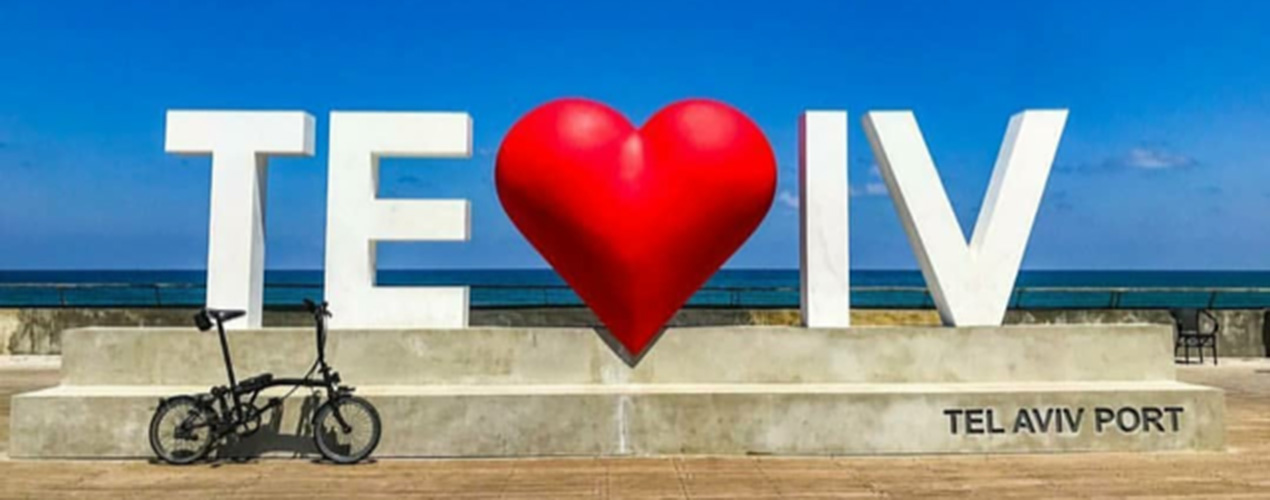Tel Aviv was established in 1909 by a group of Jewish families from Jaffa, a port city which has been inhabited for over seven thousand years. Tel Aviv originally began where Jaffa ended, however in 1950 the two cities were united into a single municipal entity. Tel Aviv-Jaffa is now Israel’s cultural as well as financial center, a mix of antiquity and innovation, and the center of Israel’s high-tech industry and youth culture. Its status as a UNESCO World Heritage Site speaks to its fascinating history and beautiful architecture.
Tel Aviv is an amazing, vibrant city – Israel’s second-largest – with over eight miles of beaches, an incredible cafe culture, and a non-stop feel.
The University features a 200-acre campus situated in Ramat Aviv, an upscale neighborhood just across the Yarkon River from Tel Aviv’s thriving downtown. The University provides many resources for its students, a large number of whom are international students, from traditional libraries, a large fitness center, and dining halls, to the uniquely Middle Eastern shuk on the main quad once a week.
Most medical school first-year students choose to live in apartments very close to the University in Ramat Aviv, and the process of finding, negotiating, and moving into these apartments can be facilitated during orientation. After completing first year, many students choose to move into Tel Aviv’s exciting downtown.
While Tel Aviv has something for everyone, medical school students can enjoy the many sites Israel has to offer. Less than an hour away by bus is the ancient city of Jerusalem, providing an environment of “living history”, in many ways completely different from modern Tel Aviv.
Also easily accessible by public transportation, or private car, are the Baha’i Gardens in Haifa (sometimes called the Eighth Wonder of the World), hikes in the beautiful wooded mountains and waterfalls in the north of or hikes in the incredible Negev desert to the south. You may enjoy a trip to historic Masada and the natural spas of the Dead Sea. With so much to see, it’s easy to take a break for a day or a weekend and get acquainted with all that Israel has to offer.
On top of its unparalleled setting in Tel Aviv, one of greatest assets is the students themselves. The camaraderie and support that medical school fosters and encourages in its students is a tremendous resource as you find yourself living abroad, perhaps for the first time. In addition to sharing their knowledge on coursework through peer-to-peer mentoring, upper-class students serve as guides to finding apartments, navigating banking and finance, and setting up all of the details that will allow you to call Tel Aviv home.
Capital of Industry
Tel Aviv is the center of Israeli industry and commerce. Israel’s only stock exchange as well as nearly 40% of the country’s finance and banking industry is located in Tel Aviv.
High-tech is Israel’s number one industry and has been the engine of Israel’s rapid economic development over the last decades, even in the face of a global economic crisis. Israel has the largest number of startup firms per capita of any country and the second largest concentration of high-tech companies (after Silicon Valley). As a city that encourages innovation and creativity, Tel Aviv is the heart Israel’s high-tech and information-based industries, home to most of the country’s startup companies.
Global Recognition
In 2010 and 2011 Lonely Planet magazine ranked Tel Aviv third on its list of Top Ten Cities to Visit, calling it “a truly diverse 21st century Mediterranean hub” and “by far the most international city in Israel.” In 2012 MasterCard reported Tel Aviv was the fifth most visited destination in all of Africa and the Middle East. Thanks to its 14-kilometer-long beach strip, In 2010 National Geographic magazine included Tel Aviv on its list of “World’s 10 Best Beach Cities,” along with Barcelona and Rio de Janiero.
Unique in its status as a major center of industry as well as a hub of youth culture, Tel Aviv is located on the Mediterranean coast and enjoys, on average, 318 sunny days a year. The city’s public beaches are meticulously maintained and are open to visitors year-round, encouraging everything from laid back sunbathing on the sand to sporting activities such as wind surfing – a sport in which Israel won its first Olympic gold medal in 2004.
City of Youth Culture
Tel Aviv has the largest concentration of night clubs and restaurants in Israel, despite being the country’s second most populous city. Nightlife thrives in Tel Aviv due to the city’s high percentage of residents between the ages of 18 and 34. Some are students at Tel Aviv University, some are young entrepreneurs, many are artists come to experience Israel’s most vibrant city.
One way or another, Tel Aviv has the highest percentage of young people of any city in Israel, and the city’s infrastructure (with green, eco-friendly bikes available for rent across the city), culture and atmosphere reflect this.
Tel Aviv University is proud to be part of a city that houses Israel’s only stock exchange as well as its most beautiful beaches, all within walking distance of some of the best art galleries, restaurants and nightclubs in the Middle East.

